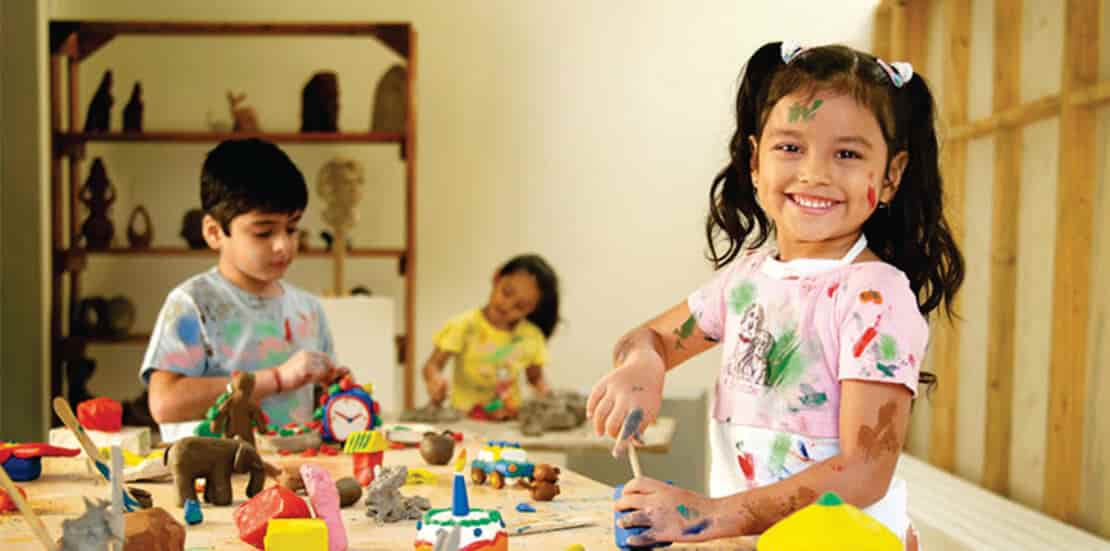Play is an essential aspect of a child’s development, serving as a natural and enjoyable way for them to learn and grow. Not only does play foster creativity and imagination, but it also plays a vital role in honing essential skills like language and motor skills. We make sure in Shashvat First Step that how children can develop verbal and motor skills through various forms of play, and why it is crucial for their overall cognitive, emotional, and physical development.
Verbal Skills through Play
1.1 Imaginative Play: Pretend play, such as playing house, acting out scenarios, or engaging in role-playing games, allows children to use their imagination and develop their verbal skills. During these activities, they communicate with peers, assign roles, and create dialogues, which aids in language development and vocabulary building.
1.2 Storytelling: Reading books, listening to stories, or participating in storytelling games helps children expand their vocabulary, improves their ability to articulate thoughts, and enhances comprehension and narrative skills.
1.3 Social Interaction: Play often involves interaction with peers and adults. Through social play, children learn to express themselves, negotiate, and engage in conversations, which boosts their verbal fluency and communication abilities.
1.4 Board Games and Puzzles: Playing board games and solving puzzles promote verbal expression as children need to discuss strategies, follow rules, and communicate effectively with others to achieve common goals.
Motor Skills through Play
2.1 Outdoor Play: Physical activities like running, jumping, climbing, and playing sports not only improve a child’s motor skills but also contribute to their overall physical health and coordination.
2.2 Fine Motor Skills: Activities such as drawing, coloring, cutting with scissors, and playing with building blocks develop fine motor skills, enhancing hand-eye coordination and precision.
2.3 Sensory Play: Playing with sand, water, playdough, and other sensory materials helps children improve their fine motor skills while exploring different textures and sensory experiences.
2.4 Gross Motor Skills: Engaging in activities like riding a bike, skipping rope, or playing tag supports the development of gross motor skills, balance, and spatial awareness.
The Importance of Play in Development
3.1 Cognitive Development: Play fosters creativity, problem-solving, and critical thinking, all of which are essential cognitive skills for a child’s academic and intellectual growth.
3.2 Emotional Development: Play allows children to express emotions, develop empathy, and understand social dynamics, leading to better emotional intelligence and self-regulation.
3.3 Physical Development: Physical play contributes to the development of strong muscles, bones, and overall physical fitness, reducing the risk of obesity and related health issues.
3.4 Social Development: Through play, children learn cooperation, teamwork, and conflict resolution, which are vital for building positive relationships and social skills.
Conclusion
Play is not just a fun pastime for children; it is a fundamental aspect of their development and we at Shashvat First Step are primarily focused on this aspect. Whether engaging in imaginative play, outdoor activities, or educational games, children acquire verbal and motor skills that lay the foundation for their future growth and success. As parents, caregivers, and educators, it is crucial to recognize the value of play and provide children with ample opportunities to explore, create, and learn through playtime experiences. By doing so, we support their holistic development and help them become well-rounded individuals with enhanced verbal and motor skills.



Leave a Reply